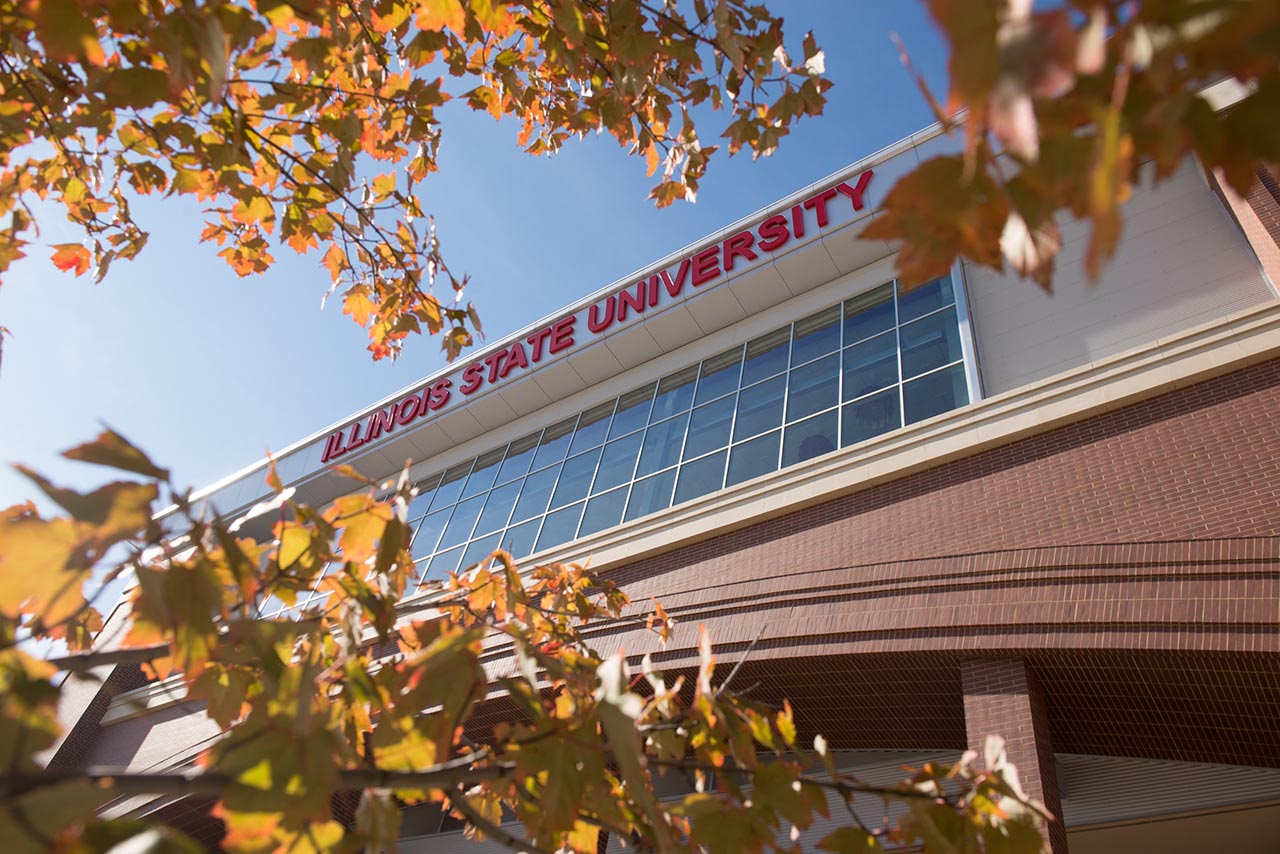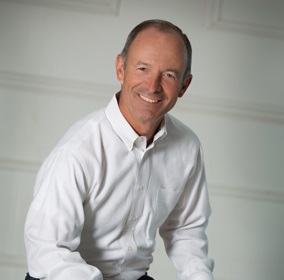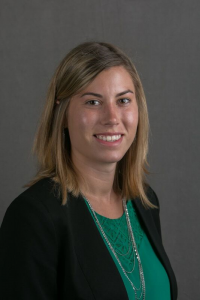Alumni of the Honors Program are making an impact in many different ways after they leave Illinois State University. Some go on to do exactly what they planned to do all along, while others take a more circuitous route to find what they are meant to do. In this year’s newsletter, we wanted to connect with a couple of Honors alumni and see what their journey has been like.
We asked Honors Program alum Mark Dunaway and recent graduate Nicole Ott about their experience once they left Illinois State for new beginnings in the world outside of college.
Mark Dunaway ’84 graduated with a major in applied computer science. Mark is currently retired but worked as a partner at Accenture for 20 years. When asked for a quote that inspires him, he said “If you do what is difficult, life will be easy. If you do what is easy, life will be difficult.”
Nicole Ott ’15 graduated with a major in human resource management, and a minor in psychology. Nicole currently works as a Human Resources Business Partner for Bridgestone Americas Tire Operations, LLC. Her favorite inspirational quote is by Maya Angelou: “I’ve learned that people will forget what you said, people will forget what you did, but people will never forget how you made them feel.”
Honors Program: Thinking back, what drew you to the Honors Program at ISU? What made you want to get involved?
Nicole: I have always found myself drawn to intelligent people and I try to surround myself with those who challenge me and push me toward a greater diversity of thought. That first year of college is a scary time for freshmen, as we struggle to not only find our place on campus, but also our place in the world after high school. What major do I choose? What clubs should I join? What type of laundry detergent do I buy? I wandered somewhat aimlessly until my sophomore year when my advisor told me about the Honors Program. I joined without hesitation, not knowing what the future would hold but knowing I wanted to be a part of something.
HP: What was the most enriching or rewarding experience you had in the Honors Program?
Mark: I needed to register for a class, and all the sections were full except for the Honors section. The person helping me register asked if I was in the Honors Program, and I did not even know there was an Honors Program at ISU. She looked at my GPA and said I was qualified to be in Honors. She suggested I go see the gentleman at the Honors Program table. That gentleman was the Honors Program Director, Dr. Ira Cohen. He agreed to admit me into the Honors Program so I could sign up for the class IF I also agreed to take his class, “History through Film Art”. Dr. Cohen’s class was one of the most enjoyable, challenging, and stimulating classes I ever took at ISU. I love movies, and I have enjoyed movies over the years so much more because I took that class. Once I took one Honors Program class, I wanted to take all my classes as Honors sections. The level of teaching by the professors, the level of questions by the students, and the discussions were so much more challenging and stimulating than in non-Honors classes. I learned that I really enjoyed that challenging environment, and learning that about myself was a key reason I pursued a career with Accenture.
N: I have to cheat a little on this question because I had two incredibly enriching and rewarding experiences that stand out. The first was my experience traveling abroad with the Honors City as Text course. I was too nervous to do an entire semester abroad, so the roughly 20-student course was a great opportunity for me to get a little piece of studying abroad but also learn a great deal about another part of the world. Throughout the semester, we studied the city of Florence, Italy and then when May rolled around we took a 10 day trip to the city itself. The trip was incredible and opened my eyes to the great big world we live in and the various cultures that surround us. I met some amazing people and learned so many things. I will carry those memories with me for the rest of my life and the trip inspired me to travel every chance I get. The second enriching and rewarding experience was when I took the opportunity to become a student leader in the Honors Program. I could not have been prouder when I got the offer to join the team. The position allowed me to share my own experience and passion for the Honors Program with other students who were unsure where they belonged and I was also able to build up my resume with great leadership experience in event planning and teamwork. Not to mention, I had the time of my life building lasting friendships with a diverse group of witty, motivated, and inspiring individuals.
HP: Tell us about your transition from college to career – challenges, surprises, things you wish you knew, etc.
M: I come from a family that does not typically go to college. As a result, I worked for two years before going to college, and I worked during college. So, I was very prepared for adult life from a personal finance perspective when I graduated college. I knew how to earn money, live by a budget, and have an “Emergency Fund” for unexpected expenses. I was much better prepared for the personal finance aspect of adulthood than most of my peers, and I saw a number of them struggle with their personal finances. The Applied Computer Science program at ISU prepared me quite well for a career at Accenture. I hit the ground running and grew with my career opportunities. The biggest challenge I faced was learning how to manage a team – how to work through others. I had led group projects at ISU, so I had some experience managing a group. But, managing a team in the professional world was a much bigger jump in responsibilities and presented a bigger challenge.
HP: What was the unexpected skill that you were most surprised to need in your current career?
N: To be completely honest, a positive attitude and building relationships have been the most significant skills in my career thus far. When I got my first job with Bridgestone, I was willing to do anything and I made friends with everyone. I filed paperwork, cleaned up after events, made excel spreadsheets, and came in at any hour to help wherever I could. I did it all with a smile on my face. It was not at all what I wanted to be doing, but I knew that it would lead me to where I wanted to go. I realized that just because I have a college degree, it doesn’t make me any better than any of the people working without one. My positive attitude and resilience are what made an impression on the people I met throughout my time in Chicago and led to the promotion that moved me here to Tennessee. The relationships I built gave me allies in powerful positions. Like the quote from Maya Angelou, I knew that making people feel good would make them remember me and if all I am remembered for is positivity and kindness, I will have accomplished something great.
HP: What advice do you have for current students?
N: Be humble and realize that it is okay to not know something. When adults, peers, and even children want to teach you something new, listen to them. Do not be afraid to ask for help or advice. We often think that someone younger or less experienced than us could not possibly teach us something we do not already know. This is a common misconception because there are always new things to learn from people of all ages and backgrounds. The more you open your mind to the viewpoints of those who may differ from you, the more meaningful your life will become.
M: Learn about personal finance. Take a class, live by a budget in college, and set clear personal finance goals for after college. Our whole education system is structured so each of us can develop skills that enable us to get a job or pursue a career. In other words, to earn an income. However, very little in our education system helps us develop the skills we need to manage our income or our personal finances. I regularly encounter adults who have well-paying jobs, but who are struggling with their personal finances. They have student loans, credit card debt, very little put away for their children’s college, and very little put away for their retirement. Then, something unexpected happens and they get into a financial bind. These are smart, educated people in their careers, but they have not learned how to manage their money well. I see the difficulties they face, and the pain that personal finance issues create in relationships and families. Do not let that happen to you. Learn about personal finance, practice it in college – especially budgeting and saving, and get off to a strong start financially so you avoid the pain so many others encounter.
Thanks to both Mark and Nicole for giving us an insight into their experiences with the Honors Program!



